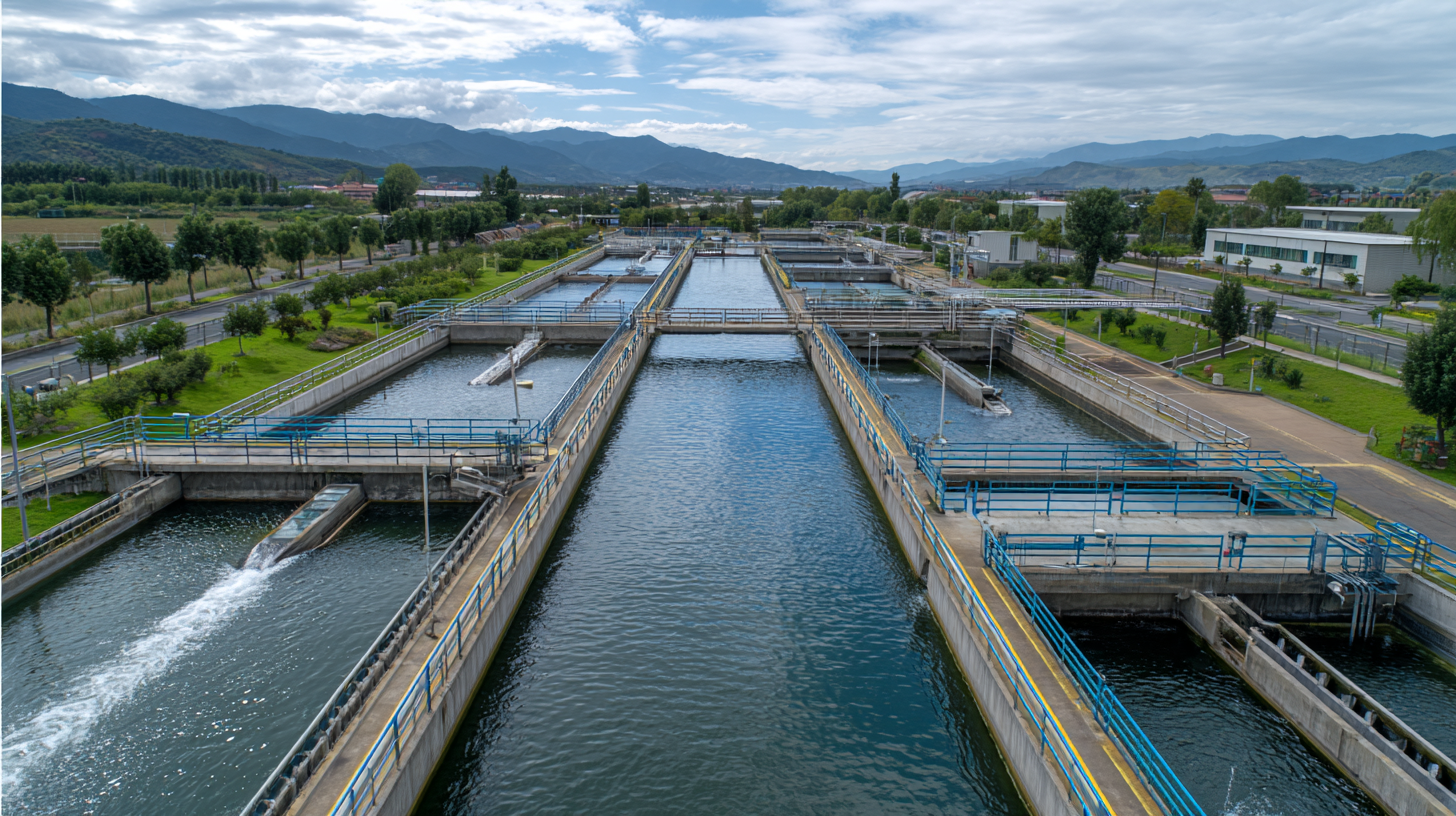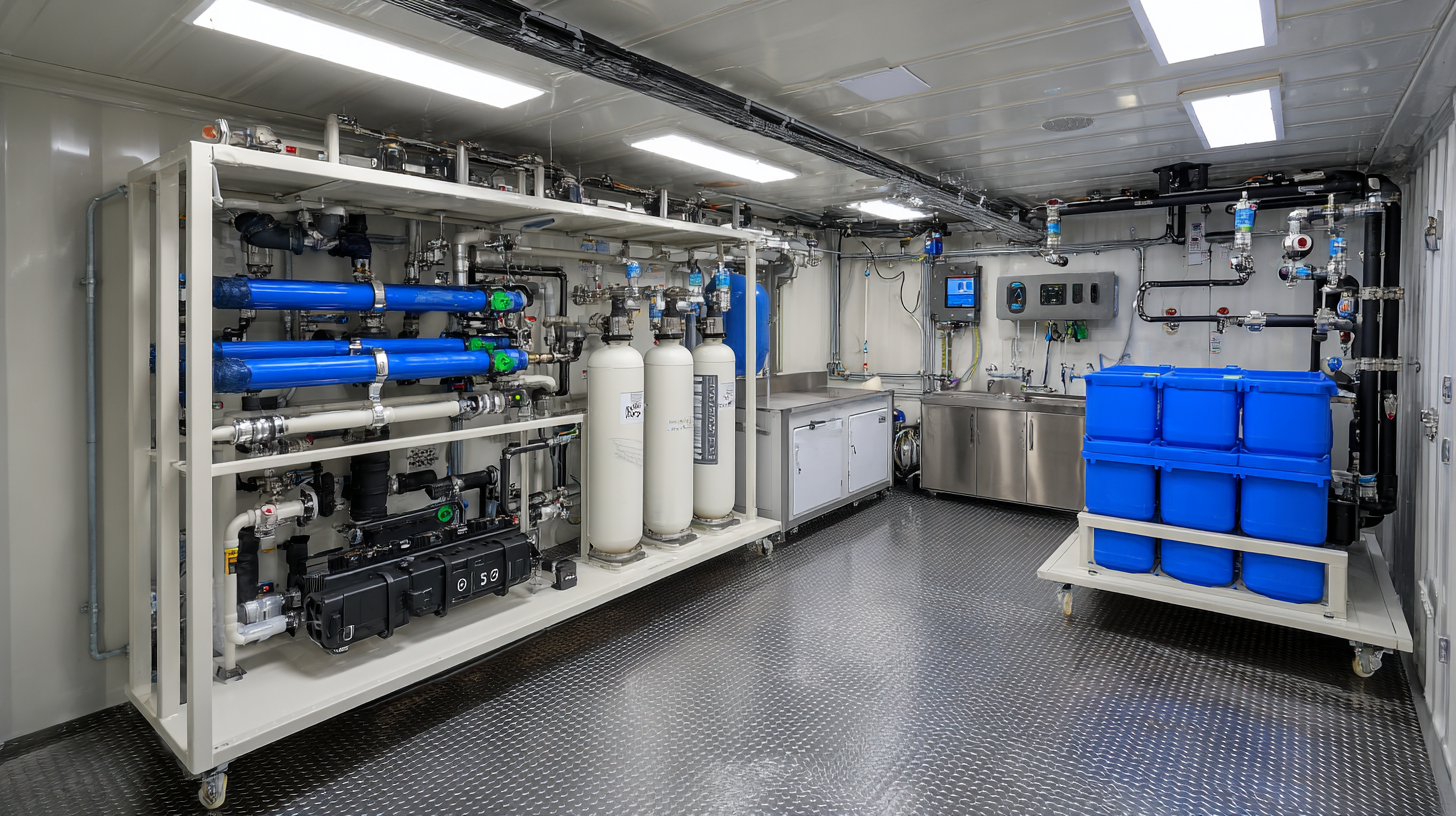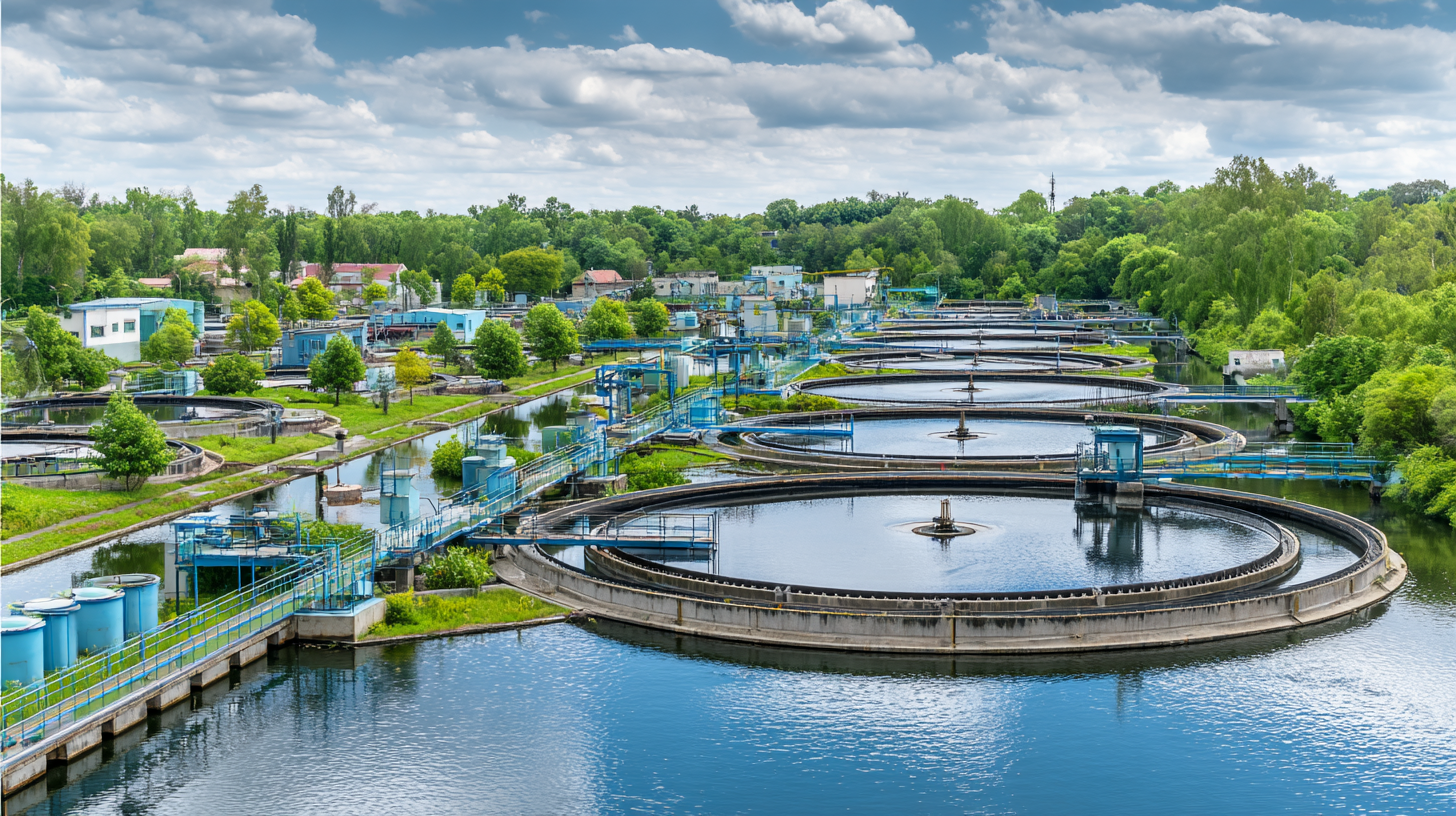Lately, there's been a real push across various industries to prioritize environmental compliance, and because of that, more companies are turning to advanced wastewater treatment technologies. These solutions are becoming pretty essential—they help cut down pollution and support sustainable operations. At APEX Company, we’re proud to offer top-notch sludge drying and conveying equipment, along with complex wastewater treatment solutions designed to meet the needs of clients all over the world. Our high-tech systems don’t just make it easier to stay within environmental laws; they also boost overall efficiency. As industries everywhere aim to do their part for the planet, adopting these innovative treatment methods can really make a difference—improving both performance and reputation. In this blog, we’ll dive into how businesses can effectively incorporate Advanced Wastewater Treatment systems into their workflow, helping them stay compliant and contribute to a greener future.

Advanced wastewater treatment tech really plays a huge part in helping us stay on top of environmental rules by effectively removing pollutants from water before it gets released back into nature. Things like membrane bioreactors, advanced oxidation, and integrated fixed-film activated sludge are designed to handle the growing demand for better treatment standards and more efficient pollutant removal. By using these modern methods, industries can make sure their discharges meet tough regulations—so they’re not just following the rules but also reducing their impact on the environment.
But here’s the thing — the benefits don’t stop at just compliance. These advanced systems can actually save money too, thanks to smoother operations and less energy use. Plus, many of these processes can recover useful resources—like nutrients that can be turned into fertilizer or water that's treated for non-drinking purposes. Adopting these technologies not only helps organizations hit sustainability targets but also sparks innovation in waste water management. It’s a smart move for staying ahead of new regulations and boosting a company’s image as an environmentally-friendly place to work and do business.

When you're choosing advanced wastewater treatment technologies, it's really important to keep a few key things in mind—things that will make sure you’re staying in line with environmental standards. The success of these systems often depends on factors like how efficient they are, whether they can be scaled up easily, and if they can adapt to different types of wastewater. I read in the Global Water Intelligence report that the worldwide wastewater treatment market is expected to hit around USD 530 billion by 2026. That just goes to show how much attention there's now on developing innovative solutions that meet even the strictest environmental rules.
For industries trying to get a grip on their wastewater management, investing in top-notch equipment really makes a difference. Take APEX Company, for example—we focus on the latest sludge drying and conveying systems, which are crucial for making wastewater treatment plants run smoother and more efficiently. Our high-tech treatment solutions have been gaining a lot of recognition, especially in China, where the need for sustainable and effective options is especially urgent. Customers trust APEX because our products not only meet the standards—they often go above and beyond. Plus, we’re really committed to protecting the environment and providing excellent service. Since each facility has its own unique challenges, selecting the right technology can make a huge difference in how well you perform environmentally and how much you spend on operations.
Getting advanced wastewater treatment systems up and running is pretty much essential for industries that want to stay on top of environmental rules without breaking a sweat. As cities grow bigger and concerns about pollutants in wastewater rise, sticking to old-school methods just might not cut it anymore. Recent studies show that combining techniques like ozonation and membrane filtration can really boost how effectively contaminants are removed. Plus, there are some exciting newer methods on the horizon—like innovative electrocoagulation systems—that can be super efficient, especially when you play around with factors like electrode material and system settings. Understanding these little details makes a huge difference, helping facilities fine-tune their treatment processes and get the best results.
One of the top strategies these days is using advanced oxidation processes, or AOPs, which are gaining popularity because they work really well for handling complicated wastewater. They’re also pretty good at cutting down organic pollutants, with some fresh and clever approaches. For industries like leather tanning or semiconductor manufacturing, having treatment solutions tailored just for their specific needs can really help them stay compliant while also doing their part for sustainability. It’s also smart for companies to keep an eye on the latest tech—think nanomaterials and other innovative tools—that can turn wastewater into a valuable resource rather than waste. Staying ahead with these cutting-edge solutions shows true environmental responsibility, and honestly, it’s just good business too.
| Treatment Technology | Efficiency (%) | Cost ($/m³) | Maintenance Frequency (per year) | Regulatory Compliance Level |
|---|---|---|---|---|
| Membrane Bioreactor | 95 | 1.50 | 2 | High |
| Activated Sludge Process | 85 | 0.80 | 3 | Medium |
| Reverse Osmosis | 99 | 2.50 | 1 | Very High |
| Constructed Wetlands | 75 | 0.50 | 1 | Moderate |
| Advanced Oxidation Processes | 90 | 3.00 | 2 | High |
You know, in today's fast-changing environmental scene, cool new tech is really stepping up to help us with compliance and monitoring. For example, advanced wastewater treatment isn’t just about ticking boxes anymore; it's also a way for industries to be more sustainable. And drones? They're pretty much becoming the go-to tools in mining. Equipped with top-notch sensors, they can fly around and give us real-time updates on air quality and emissions. The high-res data they collect on pollutants makes it easier for us to take action early and keep everything in check.
Plus, artificial intelligence is totally changing how we look at geological risks and hazards. These AI systems sift through tons of data to spot patterns and oddities that humans might miss. That means smarter decisions when it comes to resource extraction, and fewer environmental hiccups. Take Connecticut’s DEEP, for instance. Their 14 air monitoring stations are a good example of how tech can really help track air quality and check if all the environmental rules are being followed. By using these advanced tools, everyone involved can do a better job protecting the environment — making sure industries and nature can thrive together.
Basically, all this tech stuff isn’t just fancy gadgets; it’s paving the way toward a healthier, more balanced future.
Lately, there’s been a real push towards using more advanced wastewater treatment tech. It’s pretty exciting because these solutions are turning out to be game-changers for industries trying to stay on top of environmental rules. I’ve seen some pretty cool case studies where companies aren’t just ticking boxes—they’re actually making a difference. For instance, a big textile company decided to mix membrane bioreactors with some high-tech oxidation methods, and they managed to cut hazardous pollutants by about 90%. Not only did that help them meet tough regulations, but it also boosted how smoothly they run and even improved their public image.
Then there’s this other interesting example: a municipal wastewater plant that went for integrated fixed-film activated sludge systems. This was a smart move because it let them cut down on nitrogen and phosphorus runoff big time. Plus, with real-time monitoring and automation, they got more effective treatment and used less energy at the same time. These stories really show that investing in top-notch treatment tech isn’t just about avoiding penalties—it can really make a positive impact environmentally and operationally. And honestly, they set a pretty good example for other industries to follow.

As regulations around wastewater discharge keep getting stricter, the future of wastewater treatment is really heading towards some exciting, transformative changes that’ll help us stay in line with those environmental rules. New tech like membrane bioreactors and advanced oxidation methods are leading the charge in this shift. For example, membrane bioreactors not only help remove contaminants more effectively, but they also take up less space—making them perfect for city environments where every square foot counts. These innovations are crucial—not just for meeting compliance standards, but also for tackling water scarcity and pollution concerns that are only growing.
Looking ahead, things are only going to get more interesting with the rise of smart tech and AI. Imagine real-time monitoring that spots potential issues early on—giving operators a chance to fix problems before they turn into big headaches. Plus, embracing circular economy ideas means we can turn wastewater into a resource instead of just waste, which is pretty cool. This approach isn’t just about following the rules; it’s about building a more sustainable, resourceful system. Ultimately, these advancements are paving the way for a greener, more resilient future in wastewater treatment—and honestly, it’s pretty exciting to think about where this is headed.
This chart illustrates the projected improvements in various advanced wastewater treatment technologies that contribute to environmental compliance over the next five years. The data reflects the estimated percentage of facilities adopting these technologies.
: Advanced wastewater treatment technologies are cutting-edge methods designed to efficiently remove contaminants from water before it is released back into the environment, ensuring compliance with stringent regulatory standards.
Examples include membrane bioreactors, advanced oxidation processes, and integrated fixed-film activated sludge systems.
These technologies enhance operational efficiency, reduce energy consumption, result in significant cost savings, and help recover valuable resources such as nutrients and reclaimed water.
Drones equipped with sensors enable real-time monitoring of air quality and emissions, capturing high-resolution data to facilitate proactive measures for mitigating environmental impacts.
AI in geology analyzes large datasets to identify patterns and predict geological hazards, allowing for better decision-making in resource extraction while minimizing ecological disruption.
A textile manufacturer used a combination of membrane bioreactors and advanced oxidation processes, achieving a 90% reduction in hazardous contaminants and improving its operational efficiency and public image.
These technologies can significantly lower harmful discharges like nitrogen and phosphorus, improve treatment efficacy, and reduce overall energy consumption, leading to enhanced environmental stewardship.
By recovering valuable resources and improving operational practices, these technologies contribute to environmental conservation and reduce the overall ecological footprint of industries.
Real-time monitoring helps in managing treatment processes effectively, ensuring compliance with regulations, and enhancing the overall performance of wastewater treatment facilities.
Investing in these technologies not only ensures regulatory compliance but also drives substantial environmental benefits and operational improvements, enhancing the organization's public image as environmentally responsible.
You know, when we look at today’s environmental scene, it’s pretty clear how vital Advanced Wastewater Treatment technologies are becoming. These state-of-the-art solutions bring a lot to the table—better efficiency, less environmental harm, and easier compliance with all those strict regulations. Choosing the right treatment tech isn’t just a toss-up; it really depends on things like how big your facility is, what kind of wastewater you’re dealing with, and what rules you need to follow. And getting these sophisticated systems up and running? That’s all about following best practices — making sure everything runs smoothly and they fit seamlessly into what you already have going on.
Of course, to really see if these technologies are doing their job, you gotta keep an eye on things—monitor, measure, and stay in compliance. There are plenty of real-world examples showing how effective these advanced treatments can be across different industries. They prove that, with the right approach, we can tackle even pretty tough wastewater issues. Looking ahead, trends suggest that innovation and sustainability will stay front and center in this field. As these technologies keep evolving, they’ll only become more of a key player in environmental management. And with APEX Company’s expertise in top-notch wastewater equipment, they’re all set to meet the rising global demand for these game-changing solutions.

